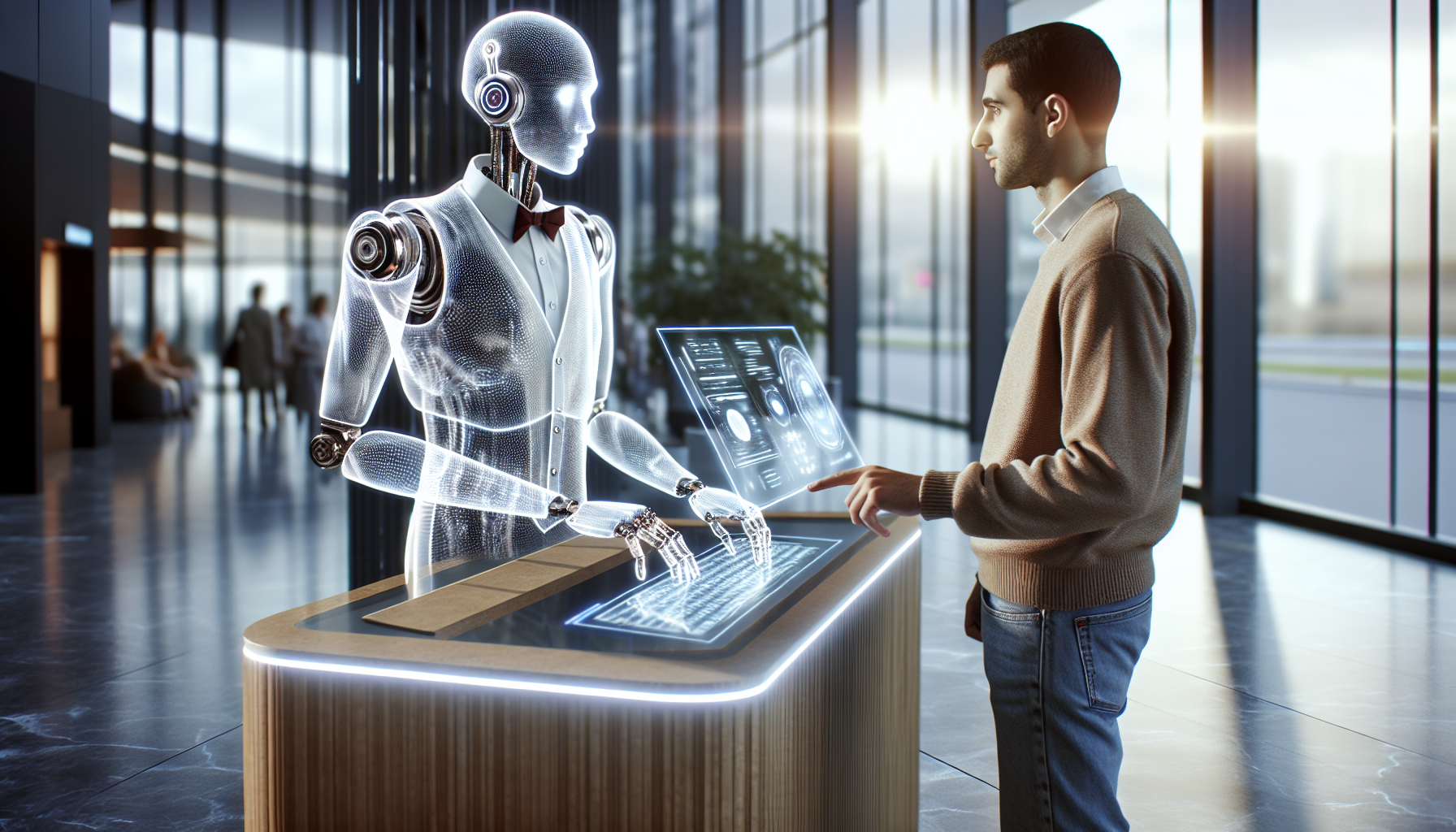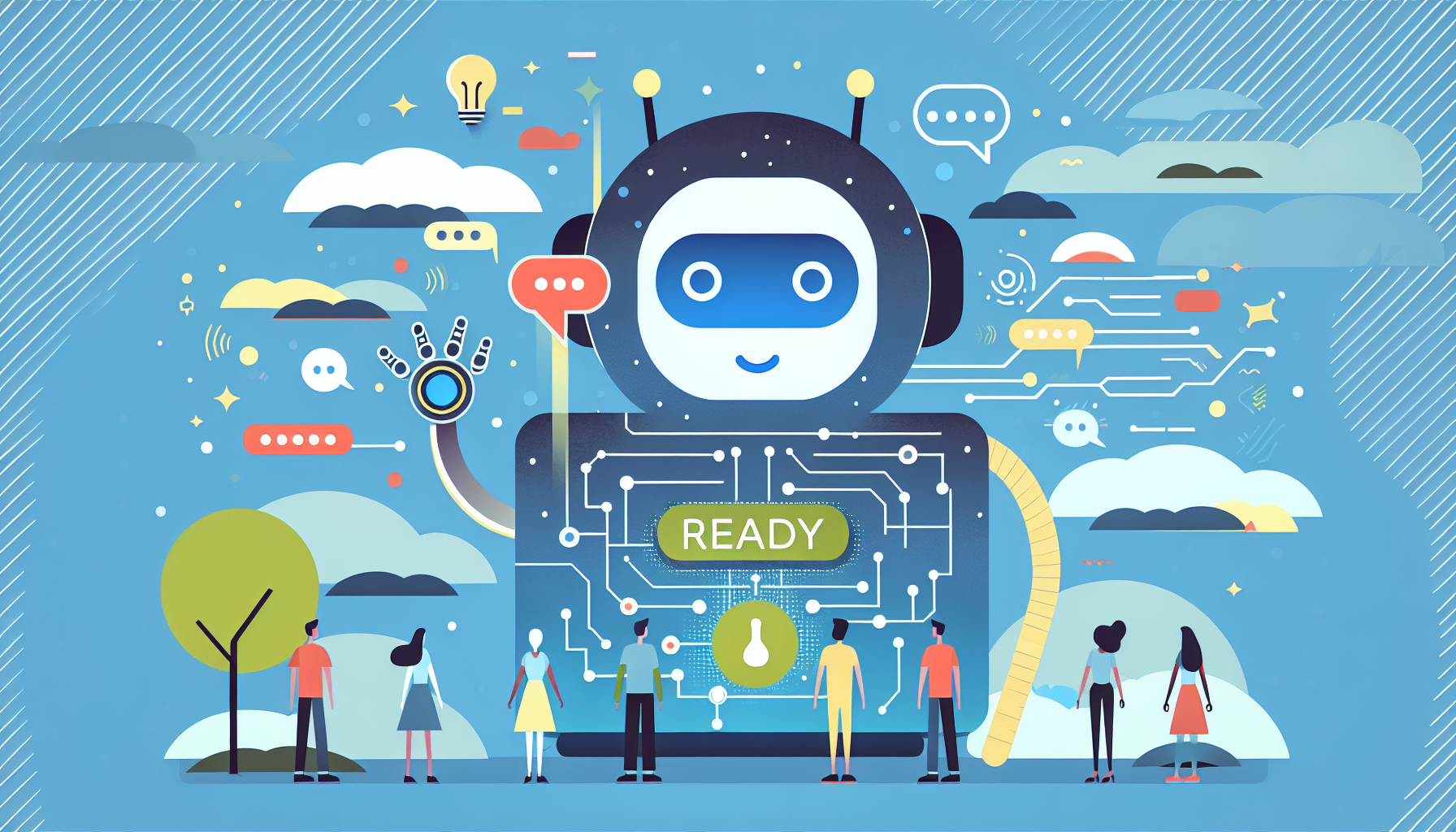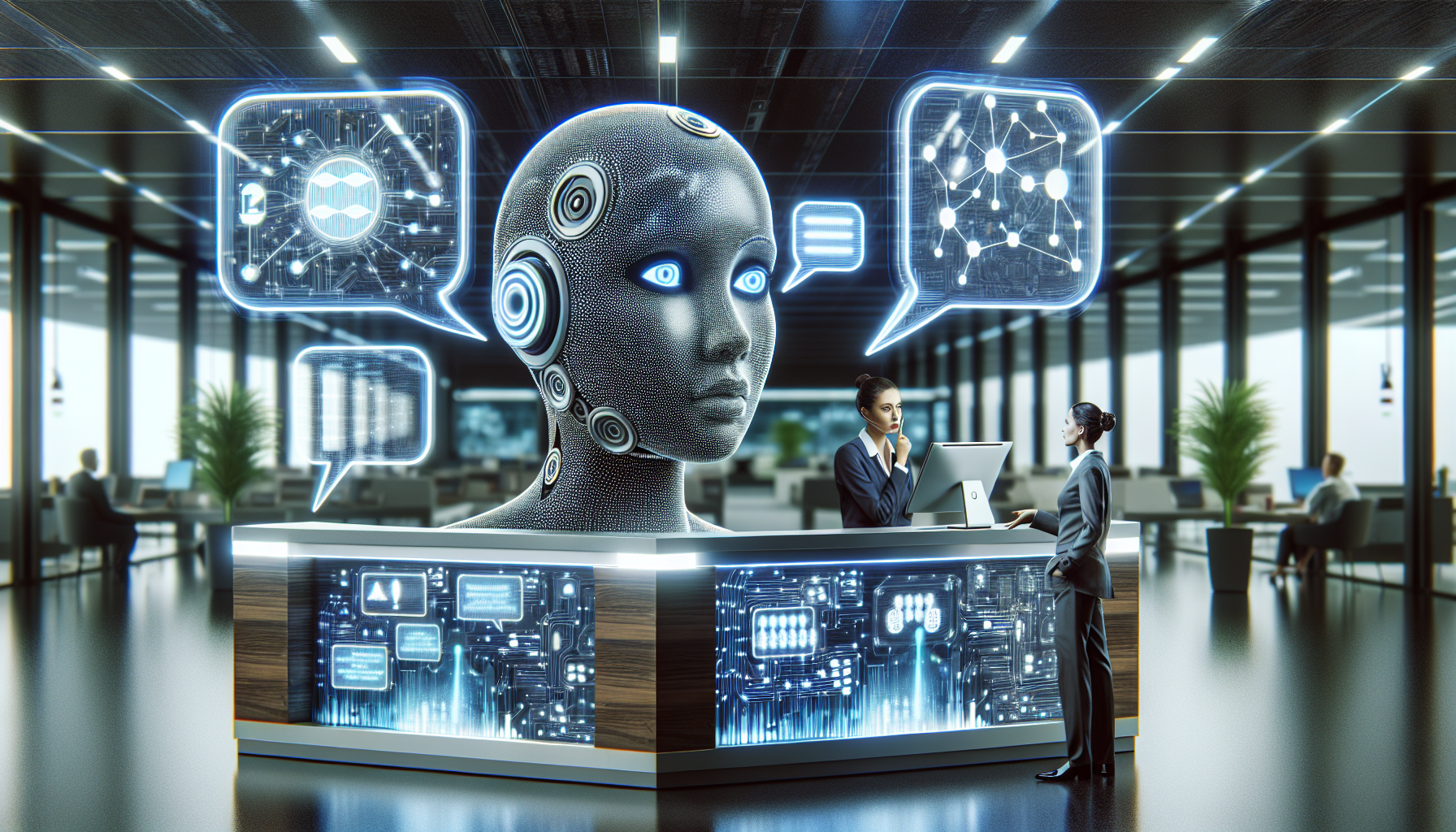
In an era where automation is becoming the new norm, AI Receptionists are gaining significant traction. They are popping up in businesses of all shapes and sizes, tasked with the crucial role of managing communication efficiently and seamlessly. They’re not the standard, pre-recorded voicemail system; these AI receptionists are intelligent beings, equipped with Natural Language Generation technology to facilitate dynamic, human-like conversation.

A variety of business sectors, from hospitality to healthcare and beyond, are harnessing the prowess of these AI-powered robotic processes to ensure smooth operations. AI Receptionists can handle tasks such as scheduling appointments, answering frequently asked questions, and redirecting customer queries to the relevant human agent. They excel in customer service, available 24/7 to handle any requests or inquiries, and are able to instantly process and respond to a mass volume of calls or chats simultaneously.
The magic lies in their use of Natural Language Generation, a subfield of artificial intelligence that enables these robotic assistants to produce written or spoken narratives from a dataset. This technology, combined with Natural Language Understanding, allows them to not only understand human language but also to respond in a manner that replicates genuine human conversation. Their responses are not static results from a pre-set list, but dynamic reactions to specific inputs. For businesses, this results in improved communication, efficiency, and ultimately, customer satisfaction.
For customers, AI Receptionists redefine their experience, providing quick, accurate, and personalized service round the clock. From the simplest request to more complex inquiries, these AI-powered companions can efficiently execute tasks, making them a significant asset in today’s digital age.
In conclusion, it's clear that the advent of AI Receptionists has unlocked new possibilities in business communication dynamics. With Natural Language Generation, they continue to evolve, generating human-like responses and redefining customer interactions.
For any business, effective communication forms the backbone of the customer experience. In recent years, the role of Artificial Intelligence (AI) in facilitating this has become increasingly important, especially in the form of AI receptionists. But what drives these AI receptionists? The answer lies in Natural Language Generation (NLG), the component that empowers AI to understand human language and tailor dynamically responsive replies.
NLG is a branch of AI that transforms structured data into a natural language. In simpler terms, NLG allows AI to create sentences in human languages. Sounds simple, right? But here is where it becomes fascinating. The AI uses an intricate, underlying algorithm to create these sentences, making it look as if a human wrote them.
AI receptionists utilize NLG to understand the context of a customer’s query, by breaking down sentences into smaller components, each with individual meanings. This Natural Language Understanding forms the backbone of how NLG works, allowing AI to read and comprehend syntactic and semantic patterns in human languages.
Once the AI receptionist has understood the context, it jumps to formulating an effective response. It uses available information, known as the document plan, to structurally plan the reply. Based on this, it constructs a suitable response using pre-set potential sentences and phrases, ensuring the reply is contextually correct and helpful.
Dynamic responses especially come into play in situations where the AI receptionist encounters a new query or context it hasn't dealt with previously. Instead of parroting out a preset response, it uses NLG principles to build a custom reply from scratch. This is what sets AI receptionists powered by NLG apart, enhancing the versatility and efficiency of their interaction with customers.
AI receptionists powered by NLG have started to revolutionize how businesses interact with their clients. Whether it is answering a simple query or providing detailed information, these AI receptionists are able to communicate like a human, all thanks to the sophisticated, yet beautifully simple, mechanics of Natural Language Generation.
As the world wraps its mind around the rapidly evolving field of artificial intelligence, businesses have already started to harness its capabilities to enhance customer service experience. One such application of AI is using it to power AI Receptionists. These agents are designed to provide engaging, dynamic responses using natural language generation, which makes interacting with them notably intuitive and natural-feeling for customers.

One of the standout benefits of AI Receptionists is their round-the-clock availability. Unlike human personnel who require breaks and have working hours, AI Receptionists operate 24/7, handling inquiries and providing instant solutions (IBM, How to Build a Chatbot). This can be incredibly beneficial for businesses that field questions and inquiries from different time zones.
Moreover, the ability of AI Receptionists to provide prompt and consistent responses cannot be overstated. Powered by Natural Language Generation, these systems can understand and process user queries in real time and provide appropriate responses without the risk of human error or emotional tiredness (Forbes, The Rise of Chatbots and AI). Whether it's the first query of the day or the last, every customer interaction is dealt with consistency, fostering a much better customer relationship.
This consistency in service quality is unmatchable, and when coupled with the swift response times that AI Receptionists can offer, result in a significantly improved customer service experience. In addition, having an automated system free up human agents to focus on more complex tasks is another noteworthy advantage.
In conclusion, by employing AI Receptionists, companies are not just embracing technology but are making a strategic move that merges efficiency, consistence, and availability - key elements of outstanding customer service.
Artificial Intelligence has made significant strides allowing organizations to automate their front desk operations and facilitate efficient customer service delivery. This section presents a few case studies highlighting the successful integration of AI receptionists in actual business environments.
The Amelia platform by IPsoft is a great illustration of an AI receptionist in action. Amelia understands, learns and interacts just like a human making her the perfect digital employee. The Royal Bank of Scotland employed Amelia and saw a tremendous impact on their operations. Amelia, acknowledged as 'Luvo' by RBS, processes over 100,000 banking queries monthly, with an average engagement speed of fewer than two seconds per query.
Another noteworthy example is Auditoria, an AI-based platform utilized by finance organizations to automate mundane tasks. By integrating Auditoria's AI-enabled digital receptionist, businesses report improved productivity, with a 35% reduction in the time required to complete routine tasks.
IBM Watson has also facilitated companies in the healthcare sector by transforming the patient-physician experience. Virtual agent 'Molly', for instance, helps patients to address their queries round the clock, reducing appointment scheduling problems and facilitating instant access to health information.
In summary, these case studies underline the transformative impact of AI receptionists. AI isn't just improving operational efficiency; it's also enhancing customer experience by providing quick, timely, and personalized responses. With Natural Language Generation capabilities, AI receptionists are set to revolutionize the whole spectrum of front desk operations by generating more dynamic interactive engagements.
While AI Receptionists promise to revolutionize customer service with instant, automated responses, there are significant challenges and limitations to this technology, primarily revolving around Natural Language Generation (NLG) and its ability to create dynamic responses.
The first major challenge lies in the complexity of human conversation. Humans use idioms, sarcasm, cultural references, and multiple languages, all of which present difficulties for NLG. Understanding the subtleties, nuances, and implicit meanings in human language is something that even the most cutting-edge AI struggles with. Achieving this level of comprehension often requires immense computational power and advanced machine learning models, posing a significant obstacle.

Secondly, AI can be literal and rigid, limiting conversational fluidity. Current NLG systems mostly operate based on pre-programmed responses which can lead to a lack of personalization and creativity in their responses. Creating highly personalized and dynamic responses is still a developing area in NLG technology.
Another critical concern is the AI receptionists' potential lack of empathy. Emotional intellegence is a cornerstone of human communication, enabling us to respond appropriately in different contexts. However, AI currently lacks this skill. Therefore, it can engage inappropriately or unsympathetically, potentially damaging customer relations.
Lastly, the issue of data privacy is prevalent. AI Receptionists need a significant amount of data to function effectively and this data often includes sensitive information. Safeguarding this information poses an additional challenge for developers.
While the potential benefits of implementing AI Receptionists are noteworthy, it is essential to fully understand and consider the current limitations, challenges, and ethical implications associated with this technology.
As we delve deeper into the digital age, the future of customer interaction continues to transform. Artificial Intelligence (AI) is revolutionizing the way companies interact with their customers. Within customer service environments, a significant shift is towards AI Receptionists, with a key driver being Natural Language Generation (NLG).
IBM's Watson Assistant serves as an apt example showcasing the capabilities of AI receptionists. Harnessing the power of NLG, this AI assistant goes beyond answering queries with predefined responses, rather, it generates dynamic responses based on incoming customer input. However, the potential applications of NLG in customer service are only beginning to be explored.
In future, we predict that AI receptionists will not just passively respond to queries, but proactively offer insights to customers. This will be carried out on the basis of behavioral patterns and personal preferences, leading to highly personalized customer service. Additionally, the AI receptionists of tomorrow will likely handle more complex tasks - from supporting customers in product selections to troubleshooting intricate issues. They could even make suggestions to customers about products or services, based on understanding contextual needs.
AI receptionists like Finie, already use NLG to understand customers' financial goals and offer customized financial advice. This hints at the potential for AI receptionists to wield a much more advisory role in the future.
This continuous evolution of the AI technology will inevitably lead to improved training data for these systems, resulting in more sophisticated responses and enhanced customer experiences. However, to get there, we need to focus on refining and advancing NLG technology.
In conclusion, the tag team of AI Receptionists and Natural Language Generation is set to redefine the customer service landscape, revolutionizing how companies interact with their customers while creating dynamic and personalized responses.
Start your free trial for My AI Front Desk today, it takes minutes to setup!








